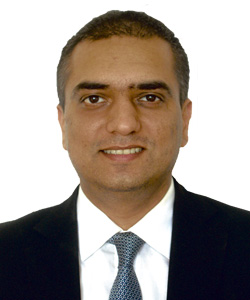Justice in India has long been delayed. There are about 4.85 million cases pending in 25 high courts and approximately 36.64 million cases pending before 3,235 district and taluka [a subdivision of a district] courts.

Partner
Kochhar & Co
In Meters and Instruments Pvt Ltd & Anr v Kanchan Mehta, the Supreme Court commented on this backlog: “There appears to be a need to consider categories of cases which can be partly or entirely concluded ‘online’ without physical presence of the parties by simplifying procedures where seriously disputed questions are not required to be adjudicated … This is a matter to be considered by the high courts and wherever viable, appropriate directions can be issued.” Despite this encouragement, no high court had issued any directions or guidelines for online hearing of cases in the more than 30 months since the Meters and Instruments case. However, covid-19 has acted as a catalyst and has pushed the Supreme Court to fast-track much needed judicial reforms.

Principal associate
Kochhar & Co
In an order dated 6 April 2020, the Supreme Court directed the high courts to take all such measures as may be required to reduce the physical presence on court premises of stakeholders in the judicial system. The court added: “the Supreme Court … and all high courts are authorized to adopt measures required to ensure the robust functioning of the judicial system through the use of video-conferencing technologies.”
Thus, covid-19 has resulted in an almost immediate adoption of hearings through video conferencing. In Sat Prakash Soni v Union of India & Ors, the Delhi High Court on 1 June 2020 made an unprecedented order that the parties submit video clips lasting 15 minutes containing their arguments, and within one week thereafter submit additional video clips of 10 minutes responding to the submissions of the other side. Following the order of the Supreme Court, the Delhi High Court has issued rules for hearings conducted through video conferencing, and other high courts are expected to follow.
The situation under the pandemic has also required setting up and revamping of e-filing facilities to enable new cases to be filed without the requirement of personal attendance. The Supreme Court has revamped its e-filing procedure and has introduced a 24/7 e-filing facility. Many high courts and district courts have taken similar steps.
Arbitration proceedings are also being held online, thereby obviating the need for the physical presence of the parties and their attorneys. This is likely to reduce costs and make arbitration hearings more efficient. In view of the increasing trade between Japanese companies and Indian entities such streamlined dispute resolution procedures can only benefit both sides.
Covid-19 will force the wider and swifter adoption of modern technology with the following benefits:
- The filing of new cases with electronic or digital signatures will obviate the need for parties from Japan and elsewhere to travel to India or to execute powers of attorney in favour of Indian nationals for filing purposes;
- Japanese clients will be able to attend court hearings and arbitration proceedings through video conferencing from their homes and offices without expending time or incurring costs in travel;
- Stricter monitoring of cases by Japanese parties will lead to greater transparency on the part of Indian attorneys, particularly in their reporting of the outcome of hearings, and
- Ensuring that even those in the remotest parts of the country will be able to access justice.
The greatest opportunity for India is to modernize its justice delivery system and the country has already taken huge strides in this regard over the past few months. If this movement continues, it will ensure that courts operate faster, and become more accessible and efficient. This will enable Japanese corporations to resolve their disputes within a much shorter time than before.
The legislature has brought about sweeping changes to the Arbitration and Conciliation Act, 1996, over the past few years. These changes together with the introduction of technology in the wake of the covid-19 pandemic are likely to make India a preferred destination for international arbitration over the next few years. In light of these improvements to the domestic dispute resolution landscape, Japanese companies in the immediate future could well draft arbitration agreements choosing India itself as the seat of arbitration for India-related disputes in place of more usual jurisdictions.
Manish Dembla is a partner and Pradyuman Singh Sewar is a principal associate at Kochhar & Co.

Kochhar & Co
New Delhi (head office):
Suite # 1120 -21, 11th Floor, Tower – A
DLF Towers, Jasola District Center
Jasola – 110 025, India
India offices:
New Delhi, Mumbai, Bengaluru, Chennai, Gurugram and Hyderabad
Overseas offices:
Dubai, Singapore, Atlanta and Jeddah
Contact details:
Tel: +91 11 4111 5222, +91 11 4312 9300
Fax: +91 11 4056 3813
Email: delhi@kochhar.com, info@kochhar.com





























